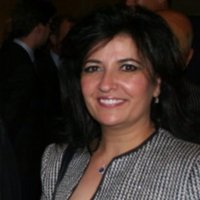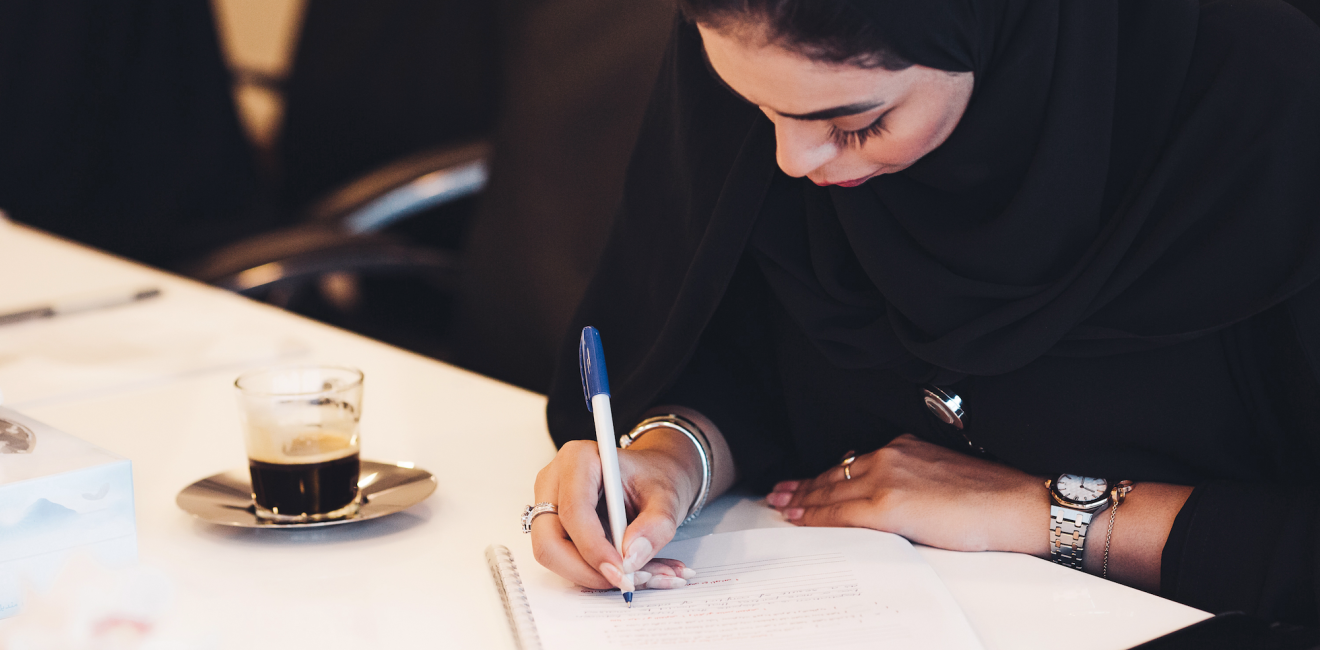
A blog of the Middle East Women's Initiative
Each [country] has its own challenges and standards governing the work of journalists, in addition to limits on freedom of the press and availability of information.
In the Middle East and North Africa region, women who hope to enter the field of journalism to write about politics face obstacles ranging from stereotyping to limits on their criticism of government. My journey with the Egyptian and Arab press has spanned over 30 years. For half of this time, I worked for Egyptian, Emirati, and Kuwaiti newspapers, and for the other half, I worked for a Saudi newspaper, Al-Sharq Al-Awsat, in both Great Britain and the United States. Each place has its own challenges and standards governing the work of journalists, in addition to limits on freedom of the press and availability of information.
At the beginning of my work in the Egyptian press, after graduating from the School of Mass Communication in 1993, I encountered many obstacles, including the stereotypical view of what women should report on. In every newspaper I tried to join, I was directed to the women’s section to write about matters related to the kitchen, fashion, decoration, and raising children. The political section of newspapers were usually dominated by men; very few women managed to break into the field of political analysis.
I decided to publish on economic topics to maneuver into the political section. I learned a lot in this field, as it usually explains the trends in politics. My articles covered the economic empowerment of women in Egypt, as there are many women who have reached the positions of ministers, bankers, entrepreneurs, and CEOs of large companies—although most women also face economic injustice, restrictions, and bureaucracy in their ability to access financing. Freedom in economic writing was relatively wider than in political writing, which tends to be more strictly governed by the newspaper’s editorial board and restrictions on criticizing the government.
Economic journalism eventually led me to work in Emirati and Kuwaiti newspapers, and in the Gulf countries that lead the stock market and corporate news. However, there are limits on critical news coverage due to the editorial policies that prioritize focus on the gains of companies and positive publicity for their work.
Transition to the West
My perspective expanded when I began to work for a Saudi newspaper in countries that enjoy a great deal of media freedom, freedom of the press, and freedom of women, such as Britain and the United States. The margin of freedom to critique is wide and so is the ability to move and obtain open and available data, reports, and information. I also found there were not the same assumptions about what topics women journalists should cover.
I realize, though, the fact I didn’t experience gender stereotyping in the US does not mean it doesn’t exist. My experience is shaped by the fact that, when I started working here, I already had 20 years of journalistic experience, and thus was less likely to be “typecast” into a specific field. For example, when I worked for The Washington Times covering Middle East issues, the main priority of my editors in the political department was to verify and document the information that I obtained from Arab sources.
As for working in a Saudi newspaper at the Washington, DC office, the publication of press reports, investigations, and analyses is governed by the editorial office and the position of the Kingdom of Saudi Arabia on these issues. Whether an article will be published in a Saudi newspaper is governed by what the political leadership in Riyadh decides. If there are disputes between the Kingdom of Saudi Arabia and a given country, critical articles of that country are likely to increase. If a controversy arises in the US Congress or administration concerned with an issue related to the Middle East region, the subsequent reporting must follow the perspective and interests of the Saudi political leadership.
Despite this, the most prominent characteristic of my experience with Asharq Al-Awsat while based in DC over the last fifteen years is the promising development of technology. These advancements have been great for digital journalism, providing efficiency, and supporting women in leadership positions by allowing them to create communities online and better support each other.
Author

Washington Bureau Chief, Al Sharq Al Awsat

Middle East Program
The Wilson Center’s Middle East Program serves as a crucial resource for the policymaking community and beyond, providing analyses and research that helps inform US foreign policymaking, stimulates public debate, and expands knowledge about issues in the wider Middle East and North Africa (MENA) region. Read more


Middle East Women's Initiative
The Middle East Women's Initiative (MEWI) promotes the empowerment of women in the region through an open and inclusive dialogue with women leaders from the Middle East and continuous research. Read more

Explore More in Enheduanna
Browse Enheduanna
Women are the Catalysts for Change in Lebanon

How Education Can Empower Young Women in MENA


